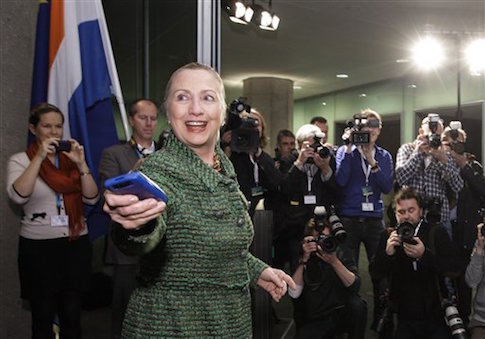Former secretary of State Hillary Clinton played a major role in shifting U.S. policy to accept that Iran would keep some capacity to continue to enrich uranium under an agreement regarding the country’s nuclear program, current and former U.S. officials said.
The Wall Street Journal reported:
In July 2012, Mrs. Clinton’s closest foreign-policy aide, Jake Sullivan, met in secret with Iranian diplomats in Oman, but made no progress in ending the dispute over Iran’s nuclear program. In a string of high-level meetings [in Washington] over the next six months, the secretary of state and White House concluded that they might have to let Iran continue to enrich uranium at small levels, if the diplomacy had any hope of succeeding.
Clinton departed from her position at State in February 2013, months after which the Obama administration announced amid international talks that Iran could continue to perform some uranium enrichment.
Sullivan, who currently works on Clinton’s presidential campaign as her top adviser on domestic and foreign policy issues, confirmed that the former secretary of state "recognized the difficulty of reaching a solution with zero enrichment."
Upon Clinton’s exit from the State Department, Sullivan began serving as a national security adviser to Vice President Joe Biden at the White House and continued to negotiate with Iranian officials for the following two years. He and former deputy secretary of State William Burn are responsible for developing much of the framework for the deal brokered in Vienna on July 14.
The deal, which Clinton endorsed as a "strong agreement" in a speech Wednesday, scales back Iran’s centrifuge machines from 20,000 to 5,000 but permits the country to expand the program to an industrial scale after 10 years under the deal.
Despite Clinton’s support, the deal remains unpopular among the American public. In fact, polling released last month indicated that a majority of battleground-state voters are less likely to vote for Clinton because she backs the Iran agreement.
